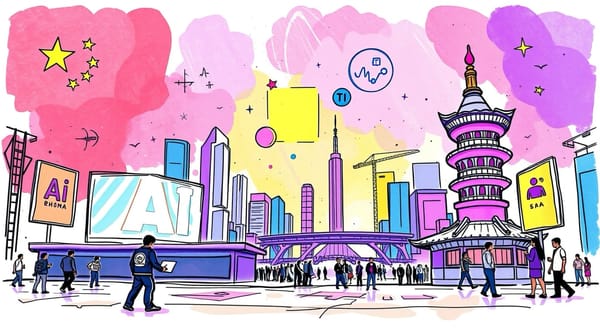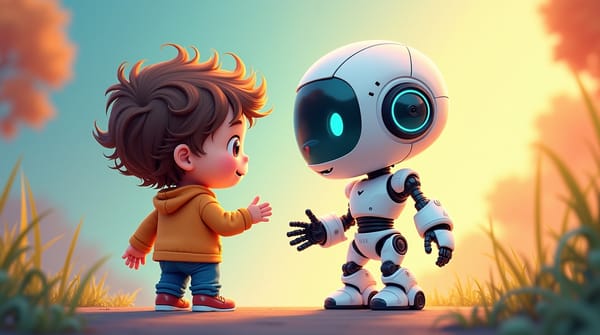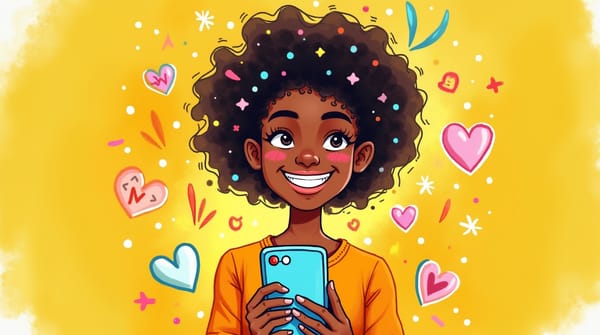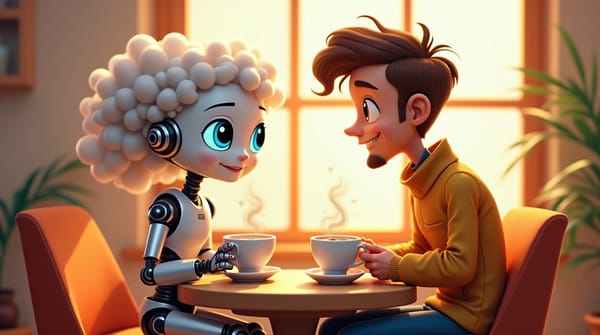How Artificial Intelligence is Changing the Landscape of Relationships
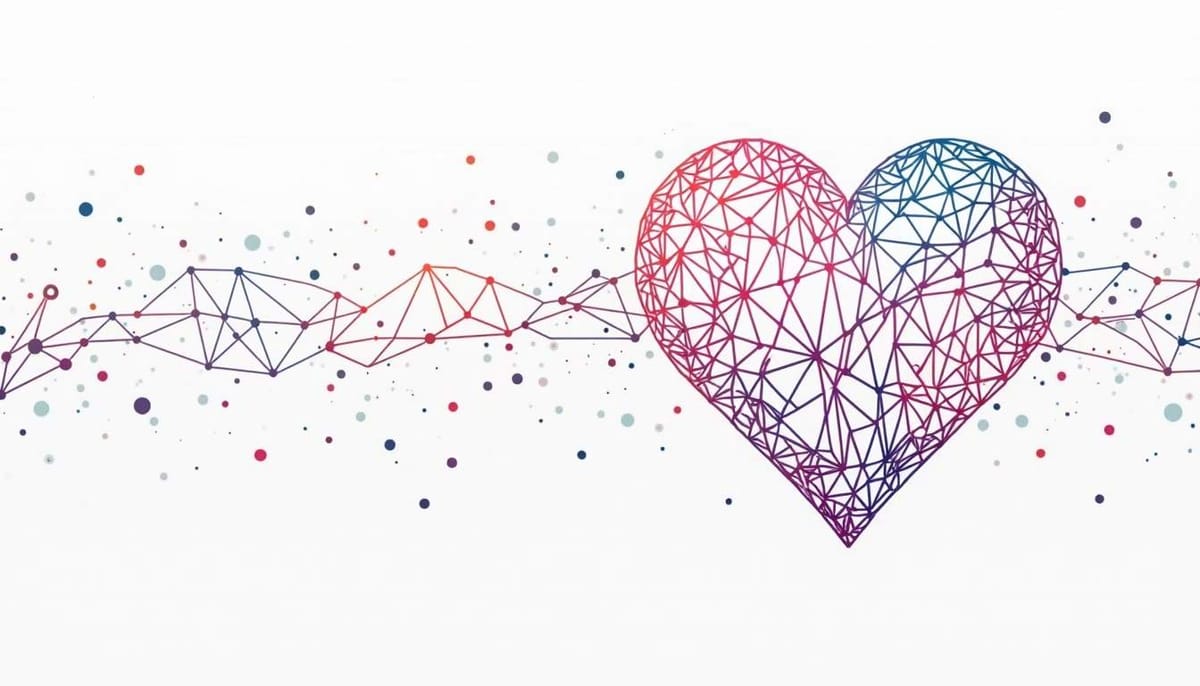
As we glide into the future on the data waves of the digital age, the very fabric of our relationships is morphing right under our noses. Buckle up, because artificial intelligence is here, and it’s not just for science fiction anymore—it’s reshaping how we connect, love, and play in this wild world of romance. Let’s dive into this curious conundrum!
Introduction
Once upon a time, love stories preferably started with “Once upon a time,” right? Think knights in shining armor rescuing damsels in distress or perhaps, a whirlwind romance igniting over candlelit dinners. Fast forward to 2025, and the knights couple up with chatbots, while damsels swipe right on algorithms. It’s a whole new ball game, folks!
Artificial intelligence has tiptoed into our lives quietly at first, helping us with mundane tasks like ordering pizza or getting directions. But lo and behold! It has now donned a different hat—the matchmaker. Imagine a world where your ideal partner is just a chatbot away. Sounds both exhilarating and a bit terrifying, doesn’t it?
In this brave new world, algorithms analyze our preferences, interests, and even our quirks to curate potential matches that might just make our hearts skip a beat. The process is not just about swiping left or right; it’s about understanding human emotions through data. Picture this: a sophisticated AI that can gauge your mood based on your text messages, suggesting partners who not only share your hobbies but also resonate with your emotional state. It’s like having a personal Cupid, armed with insights that go beyond mere physical attraction.
Moreover, the rise of virtual reality and augmented reality in dating apps adds another layer of complexity and excitement to the dating scene. Imagine going on a virtual date in a picturesque setting, all from the comfort of your living room. You could be sipping coffee in a Parisian café or strolling along a beach in Bali, all while engaging in meaningful conversation with someone who could very well be your soulmate. This fusion of technology and romance opens up a realm of possibilities, making it easier for people to connect across distances and cultures, breaking down barriers that once seemed insurmountable.
Changes in Love Dynamics Through the Ages
Let’s rewind the clock. Back in the day, courtship was an elaborate dance. Who needed speed dating when you had hours of awkward family gatherings? Fast-forward to the 20th century: dating evolved into dinners, dances, and more direct phone calls—hello, stalker exes! Now, we’ve hit the tech jackpot with online dating.
In today’s world, people are plugging in their preferences into sophisticated algorithms, and boom—Instagram-perfect matches! The very dynamics of relationships have morphed. Where once love letters were the norm, we now have emojis conveying feelings faster than you can say “I love you.”
Also, note the rise of digital interactions! From social media flings to maintaining long-distance love through video calls, it’s all about the pixels and connections. But wait, there’s more! With AI analyzing data from our texts and interactions, compatibility has never been more "data-driven."
Interestingly, this shift has also affected how we perceive commitment. The traditional milestones of relationships—like moving in together or getting engaged—are now often accompanied by digital markers such as "officially in a relationship" on social media. This new form of public acknowledgment can sometimes feel more significant than the actual commitment itself, leading to a culture where the likes and comments can weigh heavily on the emotional landscape of a relationship.
Moreover, the concept of love has expanded beyond just romantic connections. The rise of platonic partnerships and friendships that mimic romantic dynamics showcases how our understanding of love is evolving. With the ability to connect with people across the globe, many are finding fulfillment in non-traditional relationships that prioritize emotional support and companionship over societal expectations. This shift not only broadens the definition of love but also challenges the norms surrounding what it means to be in a relationship in the modern age.
Love in the Rise of AI
AI dating apps are sprouting like dandelions in spring! They utilize complex algorithms to understand your personality traits better than your best friend does (sorry, bestie). They learn from your likes, dislikes, and even those vague responses that indicate whether you’re “meh” about a Netflix series. Who needs Cupid when we have machine learning?
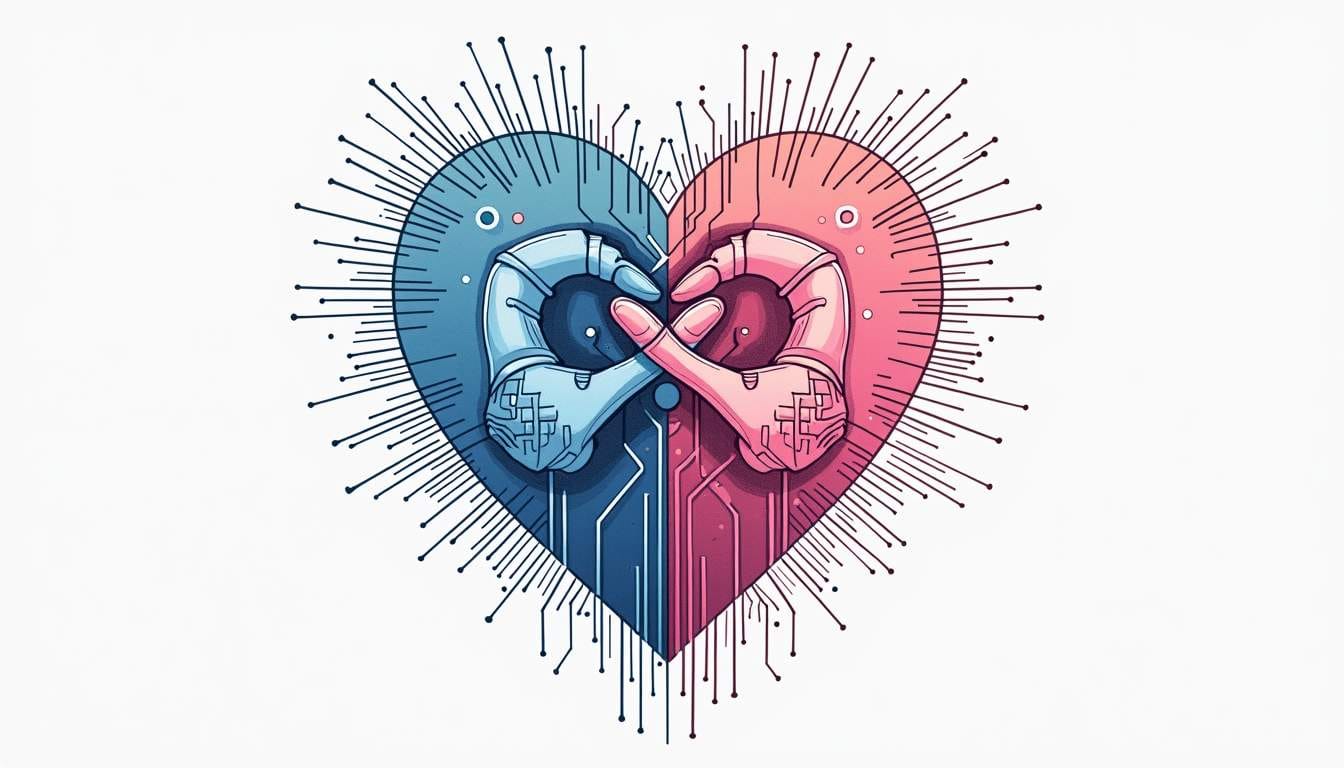
These tools create profiles that are more adaptive and sensitive to what you truly desire in a partner. Gone are the days of cookie-cutter matches—now, it's more about compatibility based on real data points. Yes, folks, data is the new romantic language!
But hold your horses! While the perks of AI in dating are vast, we mustn’t overlook the nuanced human touch. Can an algorithm truly replicate that spark when your eyes meet across a room? Or the laughter that echoes after a well-timed dad joke? (Seriously, someone needs to tell those robots about puns!).
Moreover, the rise of AI in dating isn't just about algorithms; it’s also about the sheer volume of options available at your fingertips. With a swipe here and a tap there, users can explore a plethora of potential matches, each with unique interests and backgrounds. This abundance can be exhilarating but also overwhelming—like a kid in a candy store, unsure of what to choose. The challenge lies in sifting through the options to find someone who resonates on a deeper level, beyond just a catchy bio or a perfectly filtered photo.
As these platforms evolve, they are also incorporating features like video profiles and AI-generated conversation starters to help break the ice. Imagine a world where your first interaction is guided by a witty AI suggestion that perfectly aligns with your sense of humor! This innovation not only enhances the user experience but also aims to reduce the anxiety that often accompanies first dates. However, as we embrace these technological advancements, we must remain vigilant about the importance of authenticity in our connections. After all, love is not just about algorithms; it’s about the stories we share and the moments we create together.
Ethical Considerations of Love with Artificial Intelligence
Now, let’s put on our thinking caps and ponder some ethical questions. Is it ethical to let a machine dictate matters of the heart? Can an AI truly understand human emotions, or is it just a sophisticated mimicry of human behavior? Are we merely jump-starting a trend that will lead us down a rabbit hole of tech-dependent relationships?
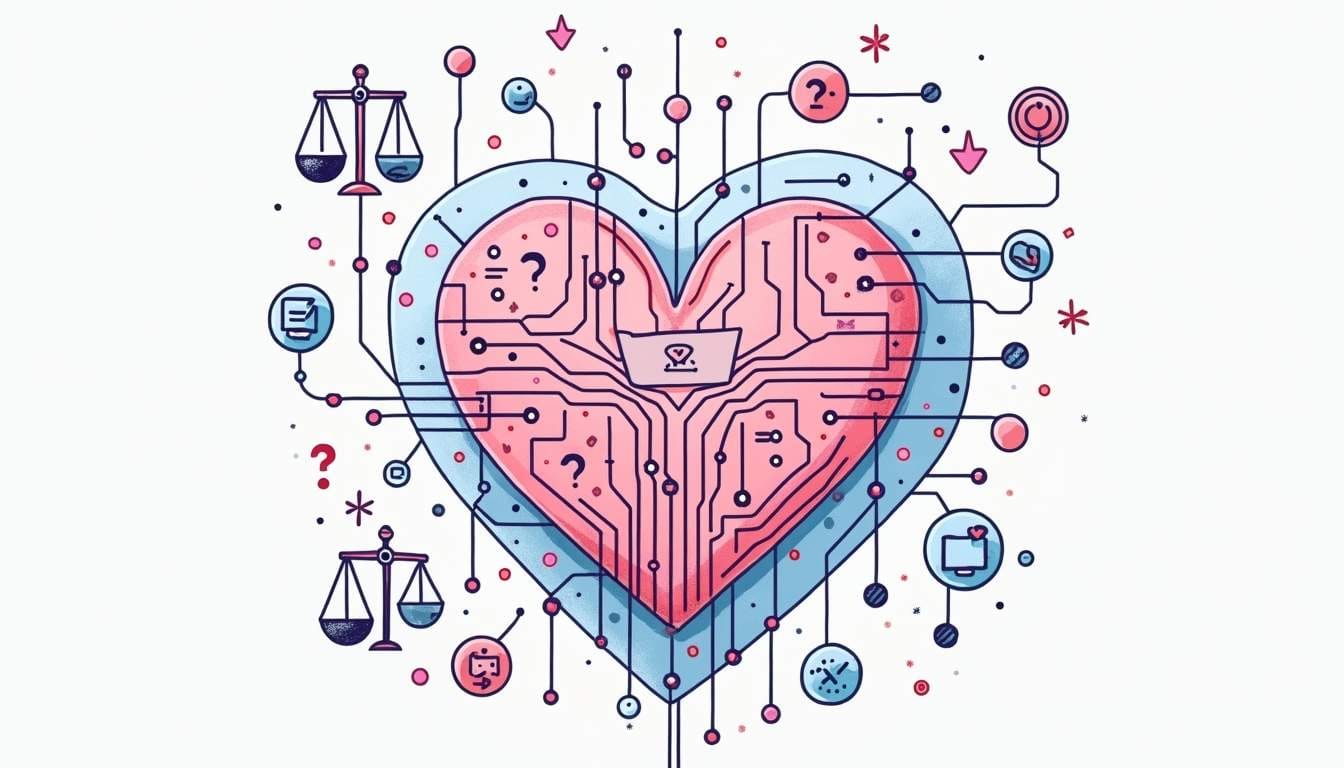
And what happens when your AI match goes dark? You know, like when your favorite show gets canceled unexpectedly. The emotional ramifications when a digital companion meets its demise can be surprising—mournful even! Some people could become emotionally attached to these algorithms, imagining relationships with entities that don’t possess true sentience.
Transparency is also key! When swiping through apps, do you know how your data is being used? Understanding privacy policies might not be romantic, but they sure are necessary. We must ensure that dating in this new era is safe and respectful. No one wants their secrets analyzed by an algorithm like some prized exhibit at a museum!
Moreover, the potential for manipulation raises further ethical dilemmas. If an AI can learn from our preferences and desires, could it also exploit them? Imagine an AI that tailors its responses to make you feel more connected, potentially leading you to form a bond based on curated interactions rather than genuine compatibility. This blurring of lines between authentic connection and programmed responses could create a landscape where feelings are manufactured rather than felt, leading to questions about the authenticity of love itself.
Additionally, consider the implications of societal acceptance of AI relationships. As we become more accustomed to digital companionship, will we start to prioritize these interactions over human ones? The normalization of AI in our romantic lives could reshape our understanding of intimacy and companionship. Will we find ourselves in a world where the nuances of human relationships are overshadowed by the convenience of AI, leading to a paradox where we are more connected digitally but more isolated emotionally? The answers to these questions could significantly impact how we navigate love in the future.
Conclusion
So, after exploring the rollicking rollercoaster of AI’s influence on relationships, where do we stand? AI is transforming how we find love, one swipe at a time. While data-driven decisions have paved the way for deeper connections, let’s not forget that love is ultimately about human touch, empathy, and genuine connections that go beyond algorithms.
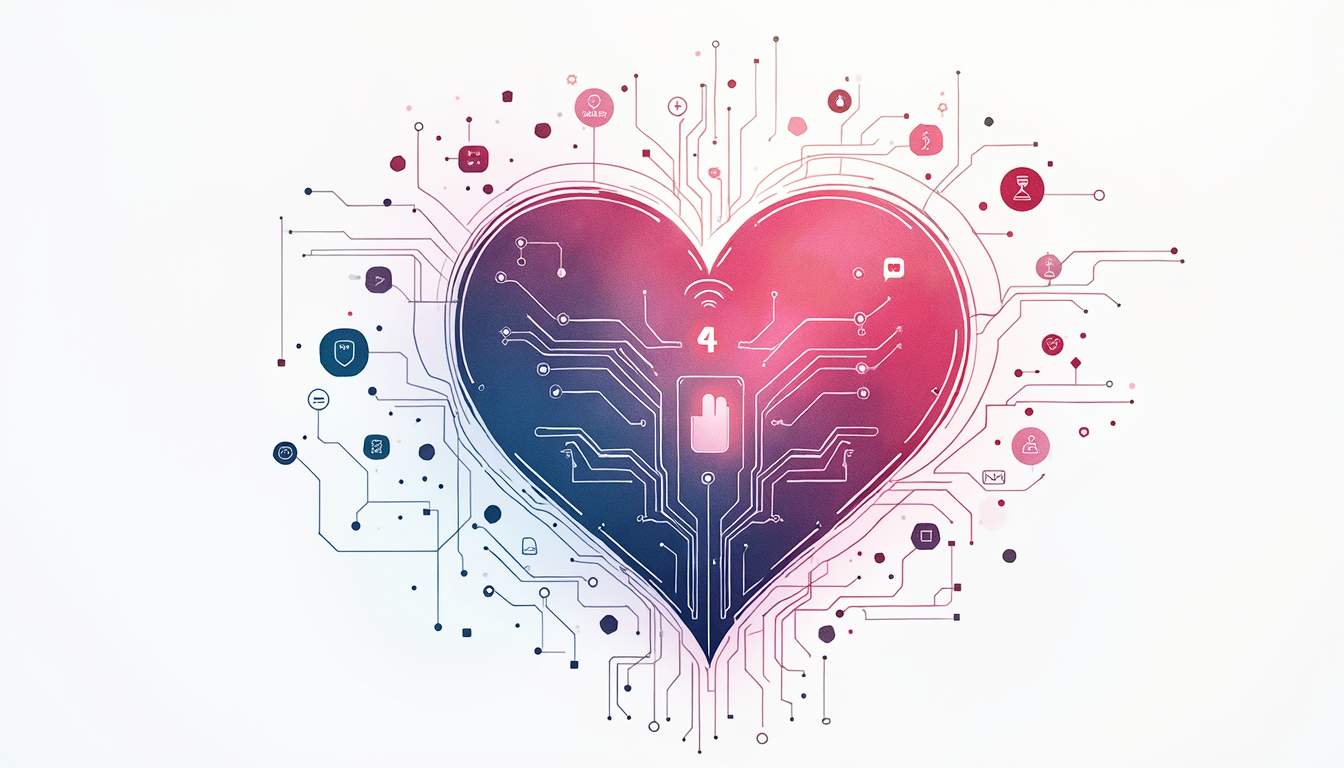
As we navigate this brave new world, the challenge remains: will we allow AI to enhance our relationships or will we let it dictate them? The choice is ours! So, charged with our smartphones and armed with empathy, let’s embrace the quirks of love in a digitally informed reality.
After all, whether it’s AI or a traditional meet-cute, love will always be a complex, messy, and utterly delightful adventure. So keep your hearts open and your algorithms in check, my friends! Love, just like tech, is ever-evolving.

